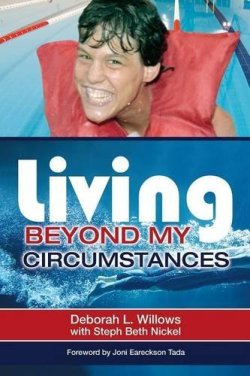 Out of the Blue, by Jan Wong (Jan Wong, 2012)
Out of the Blue, by Jan Wong (Jan Wong, 2012)
This book’s subtitle says it all: “A memoir of workplace depression, recovery, redemption, and, yes, happiness.”
Jan Wong was an award-winning journalist and best-selling author, on staff at the Toronto Globe and Mail, one of Canada’s largest newspapers. She was tough, focused, and unstoppable. Until national backlash to one of her articles triggered death threats and caused the paper to withdraw its support (despite having approved the story in the first place).
I love the title of this book, with its double meaning. The crisis hit “out of the blue” but also the book is Ms. Wong’s story of coming through and out of the “blue” of depression. In the preface she says, “I want to tell you that there is day after night, and hope on the other side.” [p. 10]
Oddly enough, I heard about the book in a conversation about independently-published works. Since I’m now an indie author myself, I listened closer, only to recognize the author from her syndicated columns in my local newspaper. I like her columns, and her story caught my interest.
Out of the Blue is a transparent look back at one person’s major depressive episode. Jan Wong is a gifted writer, and the text flows like a novel except where she adds portions of relevant research. Those never feel like info dumps, but they do remind us we’re reading non-fiction. The author has reconstructed this period in her life from detailed notes and conversations with family and friends, and she offers the disclaimer that her perception of events may not have always been accurate. (For example, was the doctor’s receptionist shrill and impatient or merely efficient? Hypersensitivity affects the interpretation.)
Although every person’s experience with depression is different, I learned a lot from the information she shared. Perhaps my chief take-away was that talk therapy is at least as important as medication, and that the sooner a person can admit they need help, the sooner they can begin to heal. I was startled to learn that one reason we don’t hear more about workplace-induced stress and depression is that employer/employee settlements routinely involve a gag clause forbidding the employee to speak of what happened. Imagine what that does for your healing! Fortunately for us, Ms. Wong held her ground against that clause in her own settlement.
As a Christian, I didn’t necessarily embrace the evolutionary theories in the book, but overall it gave me a much better awareness of the effects of depression. It was also an interesting read, and I was glad to see a positive ending. Because I normally review faith-based writing, I do want to include a language warning. Chapter 3 begins with a burst of profanity. If that’s an issue for you, just skip the first few paragraphs. These words are snippets of quotes from the overwhelming amount of hate mail Ms. Wong received in response to her news article. Their inclusion is to give us a sense of her circumstances.
Canadian author Jan Wong teaches journalism in Fredericton, New Brunswick, and is a columnist for Toronto Life. For more about the author and her work, visit her website: janwong.ca. If you visit, take note of the image showing that Out of the Blue made the bestseller list (despite being independently published) of the very newspaper that failed to support her as an employee in distress.
[Review copy from the public library.]
Like this:
Like Loading...
 Love Rebel: Reclaiming Motherhood, by Anna Eastland, Monique LeBlanc, Bonnie Way, Monique Les and Melanie Jean Juneau, edited by Roberta Cottam (Village Acres Publishing, 2015)
Love Rebel: Reclaiming Motherhood, by Anna Eastland, Monique LeBlanc, Bonnie Way, Monique Les and Melanie Jean Juneau, edited by Roberta Cottam (Village Acres Publishing, 2015)








